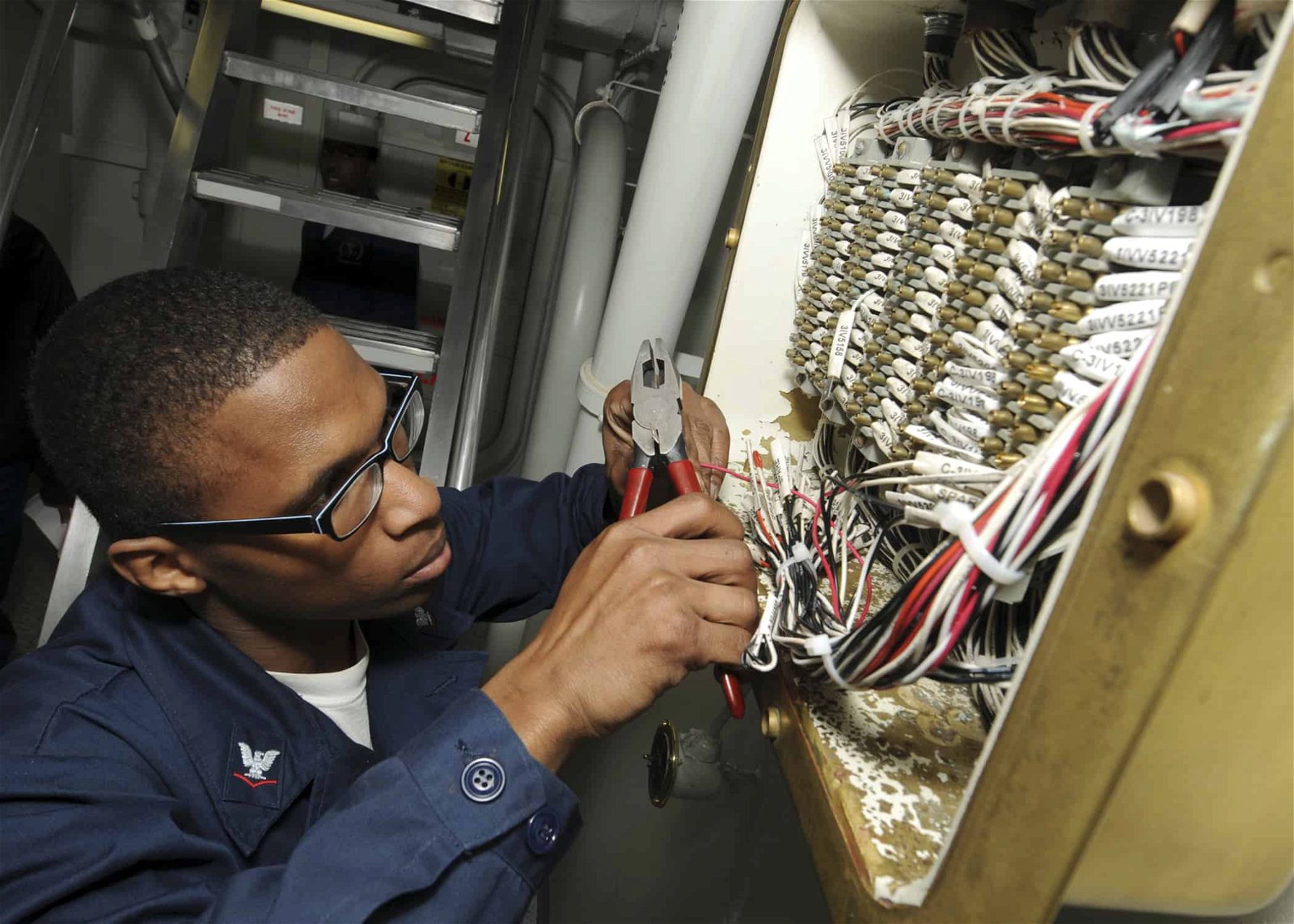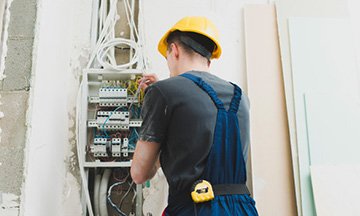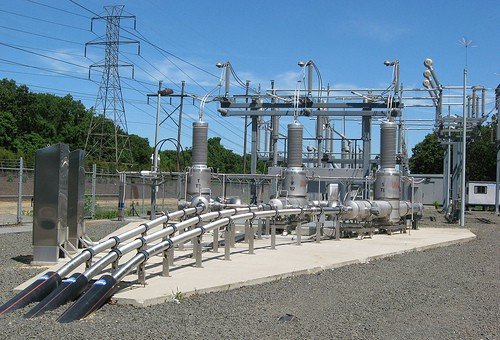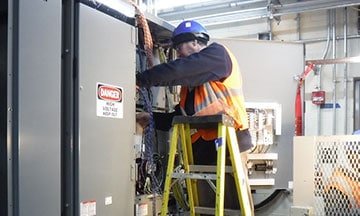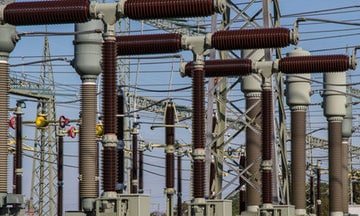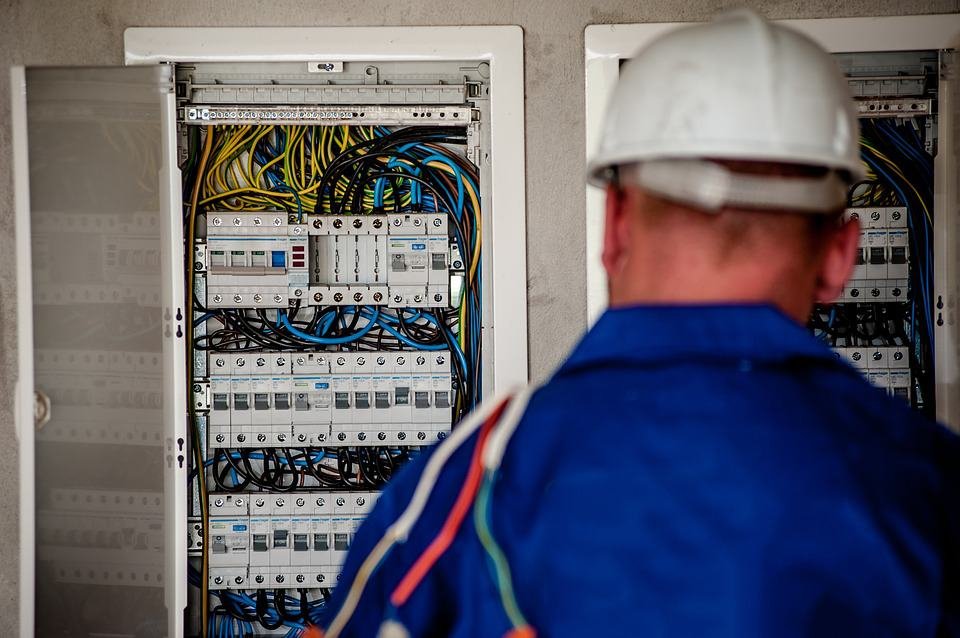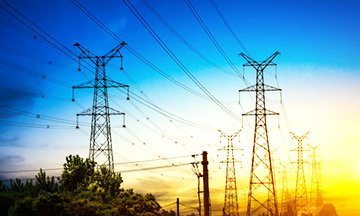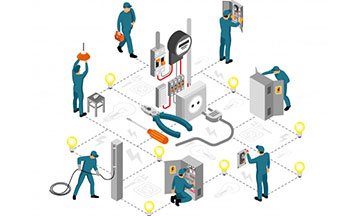Electrical Installation, Wiring and Maintenance Training
| Date | Format | Duration | Fees | |
|---|---|---|---|---|
| 29 Apr - 03 May, 2024 | Live Online | 5 Days | $2250 | Register |
| 24 Jun - 28 Jun, 2024 | Live Online | 5 Days | $2250 | Register |
| 29 Jul - 02 Aug, 2024 | Live Online | 5 Days | $2250 | Register |
| 22 Sep - 30 Sep, 2024 | Live Online | 7 Days | $3147 | Register |
| 11 Nov - 22 Nov, 2024 | Live Online | 10 Days | $4495 | Register |
| 16 Dec - 24 Dec, 2024 | Live Online | 7 Days | $3147 | Register |
| Date | Venue | Duration | Fees | |
|---|---|---|---|---|
| 06 May - 10 May, 2024 | Dubai | 5 Days | $4750 | Register |
| 20 May - 24 May, 2024 | Toronto | 5 Days | $5695 | Register |
| 10 Jun - 14 Jun, 2024 | Dubai | 5 Days | $4750 | Register |
| 15 Jul - 19 Jul, 2024 | Dubai | 5 Days | $4750 | Register |
| 05 Aug - 09 Aug, 2024 | Dubai | 5 Days | $4750 | Register |
| 08 Sep - 19 Sep, 2024 | Doha | 10 Days | $9150 | Register |
| 23 Sep - 27 Sep, 2024 | Dubai | 5 Days | $4750 | Register |
| 28 Oct - 01 Nov, 2024 | Dubai | 5 Days | $4750 | Register |
| 25 Nov - 06 Dec, 2024 | Kampala | 10 Days | $9150 | Register |
| 25 Nov - 29 Nov, 2024 | Dubai | 5 Days | $4750 | Register |
| 02 Dec - 13 Dec, 2024 | Barcelona | 10 Days | $9850 | Register |
| 02 Dec - 06 Dec, 2024 | Dubai | 5 Days | $4750 | Register |
Course Overview
The modules of this Electrical Installation, Wiring and Maintenance Certification course are shaped around the essential principles that should be recognised for a better appreciation of the standards around electrical wiring systems.
This contains aspects that explain and demonstrate the calculation for the power demand of a system and the calculation of earth fault currents. This course is not only informative in nature but also delivers important details needed to make an electrical system safe and secure for operation.
Which industrial areas is the ‘Electrical Installation, Wiring and Maintenance Certification’ course useful for? The content of this program will be useful across various civil and structural engineering disciplines including road, rail and drainage systems, harbours, dams, bridges, buildings and other constructions. It is vital that those who work in the supervisory or management levels of this discipline have a firm understanding of the drafting and planning principles for wiring mechanisms.
This Zoe training course expands your skills and knowledge in the planning and execution of engineering plans to ensure that they conform to global standards. You will learn about the various areas of civil engineering including structure, project management, strategy and testing.
This Electrical Installation, Wiring and Maintenance Certification training program aims to provide you with both the theoretical and applied education and training so that you can either obtain a new role or excel further in your current role within the building and construction industry.
Our goal is to certify that you become a valuable, well-informed and accomplished supervisor or manager who can work beyond simple instructions to ensure that your respective project related to electrical wiring is delivered effectively.
Course Objectives
Upon completing this Electrical Installation, Wiring and Maintenance Certification course successfully, participants will be able to:
- Describe the basics of operating and setting up electrical wiring systems
- Select suitable types and ratings of electrical wiring systems
- Understand the importance of fulfilling the requirements for safe use of electrical equipment and systems
- Comprehend various earthing mechanisms and its importance in safety
- Perform simple methods of calculating to check the suitability of conductors and protective earthing elements to guarantee safe operation
- Specify electrical system testing procedures
- Conduct sporadic checks and verification measures that need to be carried out in an electrical installation as required for compliance purposes
- Draw up simple operational policies for safety guidelines
- Develop realistic maintenance strategies for electrical wiring systems
Training Methodology
This is an interactive Electrical Installation, Wiring and Maintenance Certification training program and will consist of the following training approaches:
- Lectures
- Seminars & Presentations
- Group Discussions
- Assignments
- Demonstrations
- Case Studies & Functional Exercises
Just like all our courses, this program also follows the ‘Do-Review-Learn-Apply’ model.
Organisational Benefits
Companies who send in their employees to participate in this Electrical Installation, Wiring and Maintenance Certification course can benefit in the following ways:
- Have a workforce that is more skilled and equipped to manage electrical wiring
- Better and more effective electrical wiring plans concentrating on the requirements of the organisation
- Less downtime in case of any calamities due to efficient risk management
- Reduced expenses and losses preventable due to increased safety standards
- Higher compliance with global safety standards
- An increased brand image due to conformity with international safety policies
- Improved crisis management and business continuity processes
Personal Benefits
Professionals who participate in this Electrical Installation, Wiring and Maintenance Certification course can benefit in the following ways:
- Learn hands-on electrical wiring skills on a mobile workstation
- Develop comprehensive wiring skills build a foundation towards higher certifications
- Expand on your electrical wiring abilities and stay ahead of the game
- Contribute to the effective risk and crisis management of your organisation
- Get yourself trained, assessed and certified by experts in the domain
- Benefit from a tailor-made academic program for technicians or equivalent workforce
- Obtain a professional qualification at a competitive cost if you sign up for this course with Zoe
Who Should Attend?
This course is ideal for technicians or equivalent employees working in the electricity sector or any individual working as an electrical technician. The program will also be useful to engineers, supervisors and other technical individuals who require a fundamental understanding of how the wiring of electrical systems need to be performed or under.
If you are a stakeholder in the power industry, as a consumer or as an employee, or if you are seeking for a job in the power industry, this course will be extremely useful to you.
Course Outline
MODULE 1: OVERVIEW AND INTRODUCTION
- Earthing and its importance in safety
- Variety and installation of wiring systems
- Range and installation of electrical equipment and safety concerns
- Testing and verification
MODULE 2: INSULATION OF ELECTRICAL SYSTEMS AND ITS FUNCTION IN SAFETY CONSIDERATIONS
- The function of electrical protection
- Role of electrical insulation
- Liquid and solid and dielectrics
- Insulation class and temperature evaluations
- Computing the demand of electrical systems for suitable conductor sizing
MODULE 3: EARTHING OF ELECTRICAL SYSTEMS
- Methods adopted for system earthing
- The need for earthing of electrical systems
- At the load (protective earthing)
- Protective conductor
- At the source (system earthing)
- Equipotential bonding
MODULE 4: EARTH FAULT DETECTION AND PROTECTION
- Earth fault loop impedance
- Computation of earth fault current
- Earth fault sensing techniques
- Limits of LV feeder lengths for appropriate earth fault recognition
MODULE 5: GENERAL ARRANGEMENT, CONTROL AND PROTECTION
- Fault protection against overcurrent
- Arrangement of electrical installation
- Switchboards
- Added protection by lasting current devices
- Safety against Undervoltage
- Safety against overvoltage
- Shield against fire threats due to arcing faults
- Control of electrical installation
MODULE 6: SELECTION AND INSTALLATION OF WIRING SYSTEMS
- Sizing of conductors
- Installation
- Types of wiring systems
- Current-carrying capacity
- Aerial wiring systems
- Voltage drop considerations in sizing
- Earth sheath return system
- Busbar trunking systems and rising mains
- Enclosure of cables
MODULE 7: SELECTION AND INSTALLATION OF ELECTRICAL APPARATUS
- Protection against thermal effects
- Connection of electrical equipment
MODULE 8: EARTHING PROVISIONS AND EARTHING CONDUCTORS
- Earthing of equipment
- Earthing functions
- Earthing arrangements
- Equipotential Bonding
- Earth fault loop impedance
- Multiple Earthed Neutral (MEN)
MODULE 9: DAMP SITUATIONS
- Fountains
- Saunas
- Baths, showers, fixed containers
- Pools and tubs
- Case studies
MODULE 10: EXCEPTIONAL ELECTRICAL INSTALLATIONS
- Sites containing baths, showers or other damp situations
- Visual inspection
- Testing
- Extra-low voltage electrical installations
- High voltage electrical installations
- Hazardous areas, emergency areas
